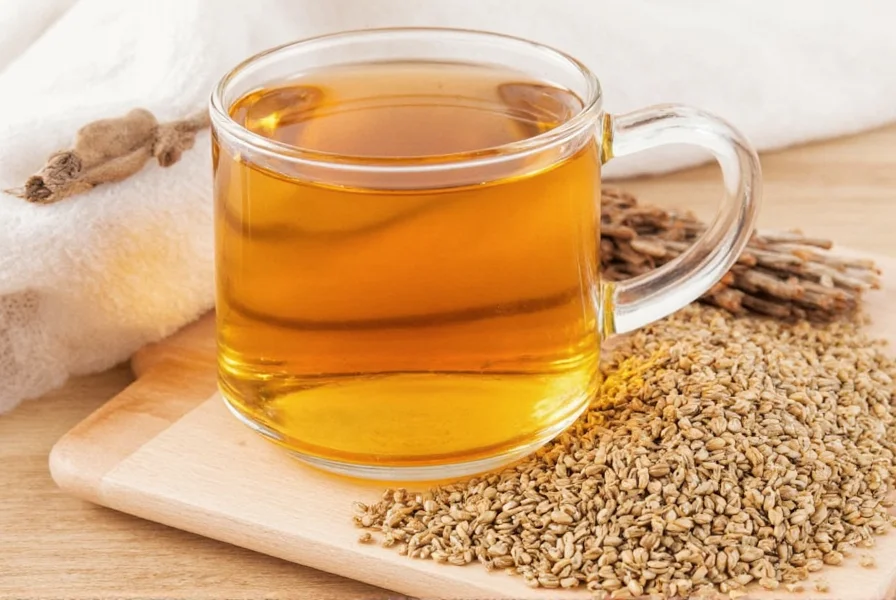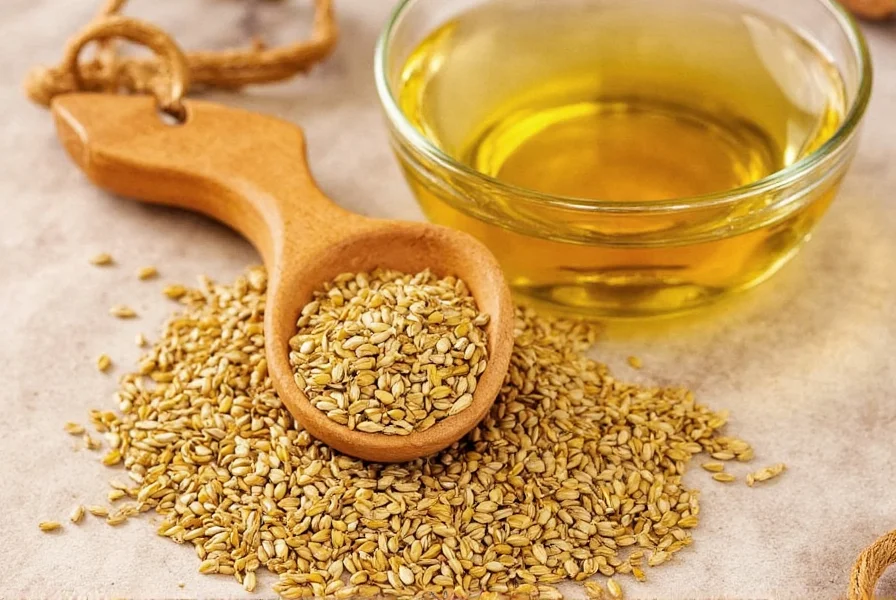Fenugreek seed tea has been used for centuries across Middle Eastern, Indian, and Mediterranean cultures as both a culinary ingredient and traditional remedy. This aromatic herbal tea, made by steeping fenugreek seeds in hot water, has gained modern popularity for its potential health-supporting properties while remaining caffeine-free and naturally bitter with a distinctive maple-like aroma.
What Exactly Is Fenugreek?
Fenugreek (Trigonella foenum-graecum) is an annual plant belonging to the legume family, cultivated for both its seeds and fresh leaves. The small, amber-colored seeds contain compounds like 4-hydroxyisoleucine and galactomannan fiber that researchers believe contribute to its physiological effects. Historically, fenugreek appeared in ancient Egyptian medical texts and traditional Ayurvedic medicine for digestive support and as a galactagogue to promote milk production.
How to Properly Prepare Fenugreek Seed Tea
Creating an effective fenugreek seed infusion requires specific preparation to maximize potential benefits while minimizing bitterness:
| Preparation Method | Steps | Recommended Ratio | h>
|---|---|---|
| Basic Infusion | 1. Toast 1 tsp seeds lightly 2. Crush slightly 3. Pour 8oz boiling water 4. Steep 5-10 minutes |
1 tsp seeds per 8oz water |
| Extended Steep | 1. Soak 2 tsp seeds overnight 2. Boil 10 minutes 3. Strain thoroughly |
2 tsp seeds per 8oz water |
| Blended Tea | 1. Combine with fennel or ginger 2. Add lemon after steeping 3. Optional: small amount of honey |
1/2 tsp fenugreek with other herbs |
Many people find the natural bitterness challenging, so blending fenugreek seeds with complementary herbs like fennel, ginger, or cinnamon creates a more palatable fenugreek seed tea recipe while potentially enhancing digestive benefits. Always strain carefully as the small seeds can be unpleasant if consumed.
Scientifically Supported Benefits of Fenugreek Tea
While traditional uses of fenugreek seed tea span centuries, modern research provides insight into which applications show the most promise:
Lactation Support
Multiple studies, including a 2018 review in Complementary Therapies in Medicine, indicate fenugreek may help increase milk supply in breastfeeding mothers. The compound diosgenin potentially stimulates milk-producing tissues. Research suggests noticeable effects may appear within 24-72 hours of regular consumption, though individual responses vary significantly. Does fenugreek tea increase milk supply? For some women, yes—but it's not universally effective.
Blood Sugar Management
A 2020 meta-analysis in Nutrition Reviews found fenugreek supplementation associated with modest improvements in fasting blood glucose and HbA1c levels. The soluble fiber galactomannan may slow carbohydrate absorption. While promising, fenugreek tea for blood sugar should complement—not replace—standard diabetes management approaches.
Digestive Health
Fenugreek's mucilage content creates a soothing effect on mucous membranes, potentially easing occasional digestive discomfort. Traditional preparation as fenugreek seed tea for digestion typically involves shorter steeping times to maximize these soothing properties.
Important Considerations and Potential Side Effects
Understanding fenugreek seed tea side effects is crucial for safe consumption:
- Digestive effects: High doses may cause gas, bloating, or diarrhea in sensitive individuals
- Allergic reactions: Possible for those with peanut or chickpea allergies (same plant family)
- Pregnancy: Not recommended during pregnancy due to potential uterine stimulation
- Medication interactions: May enhance effects of diabetes medications and blood thinners
- Maple syrup odor: Can cause harmless maple-like scent in sweat and urine
Most adverse effects occur with excessive consumption. When preparing how to make fenugreek seed tea safely, start with lower concentrations (1/2 tsp per cup) and gradually increase if well-tolerated. Discontinue use if experiencing significant discomfort.

Who Should Consider Fenugreek Seed Tea?
Certain populations may find fenugreek tea benefits particularly relevant:
- Breastfeeding mothers: Those experiencing low milk supply after consulting healthcare providers
- Individuals monitoring blood sugar: As complementary support alongside medical treatment
- People seeking digestive comfort: For occasional digestive support
- Those exploring traditional herbal approaches: With realistic expectations about effects
It's essential to maintain realistic expectations about fenugreek tea benefits for breastfeeding and other applications. While some women report significant improvements in milk production, others notice minimal effects. The tea works best as part of a comprehensive approach including proper hydration, nutrition, and frequent nursing or pumping.
Fenugreek Tea vs. Other Fenugreek Forms
Fenugreek seed tea represents just one way to consume this herb. Understanding the differences helps determine the best approach:
- Tea: Lower concentration of active compounds, gentler on digestion, immediate consumption
- Capsules: Standardized dosing, higher concentration, potential for more side effects
- Seeds (raw): Strongest flavor, requires careful preparation, highest fiber content
- Extracts: Most concentrated form, typically used under professional guidance
For those exploring how to make fenugreek seed tea as a gentler introduction to the herb, the tea preparation method offers controlled exposure with easier adjustment of strength based on individual tolerance.

Creating Sustainable Fenugreek Tea Habits
For those incorporating fenugreek seed tea into their routine, sustainability matters:
- Limited daily consumption (1-2 cups) typically provides benefits without overwhelming side effects
- Cycling usage (3 weeks on, 1 week off) may prevent tolerance development
- Quality matters—choose organic, non-irradiated seeds from reputable suppliers
- Store seeds in airtight containers away from light and moisture
Remember that fenugreek seed tea preparation method affects both flavor and potential efficacy. Proper storage maintains the seeds' volatile compounds that contribute to both aroma and potential benefits.
Frequently Asked Questions
How quickly does fenugreek tea work for increasing milk supply?
Many breastfeeding mothers report noticing increased milk production within 24-72 hours of regular fenugreek tea consumption, though individual responses vary significantly. Research suggests consistent consumption for at least 72 hours is necessary to evaluate effectiveness. Some women experience no change despite proper usage, highlighting the importance of managing expectations and consulting lactation professionals for comprehensive support.
Can I drink fenugreek tea while pregnant?
No, fenugreek tea is not recommended during pregnancy. Historical and modern medical guidance advises against fenugreek consumption in pregnancy due to potential uterine stimulation effects. The compound trigonelline may influence hormonal activity, and traditional medicine practices have long associated fenugreek with potential miscarriage risk. Always consult your healthcare provider before consuming herbal preparations during pregnancy.
What's the best time of day to drink fenugreek tea?
For lactation support, drinking fenugreek tea between nursing or pumping sessions (rather than immediately before) may optimize absorption. Many women find consuming 2-3 cups spaced throughout the day provides consistent support. Those using fenugreek tea for blood sugar management often benefit from drinking it with meals. Avoid consuming fenugreek tea close to bedtime as the mild stimulating effect may interfere with sleep for some individuals.
How long can I safely drink fenugreek tea?
Most healthcare providers recommend limiting continuous fenugreek tea consumption to 2-3 months, followed by a break. Long-term daily use may lead to diminishing effects or potential side effects. For breastfeeding mothers, many stop once milk supply stabilizes. Regular consultation with a healthcare provider helps determine appropriate duration based on individual health status and goals. Cycling usage (3 weeks on, 1 week off) represents a common sustainable approach.
Does fenugreek tea interact with medications?
Yes, fenugreek tea may interact with certain medications, particularly diabetes medications (potentially enhancing blood sugar lowering effects) and blood thinners like warfarin (increasing bleeding risk). The fiber content may also affect absorption of oral medications if consumed simultaneously. Always consult your healthcare provider before adding fenugreek tea to your routine if taking prescription medications, and maintain consistent timing between medication and tea consumption if approved for use.











 浙公网安备
33010002000092号
浙公网安备
33010002000092号 浙B2-20120091-4
浙B2-20120091-4